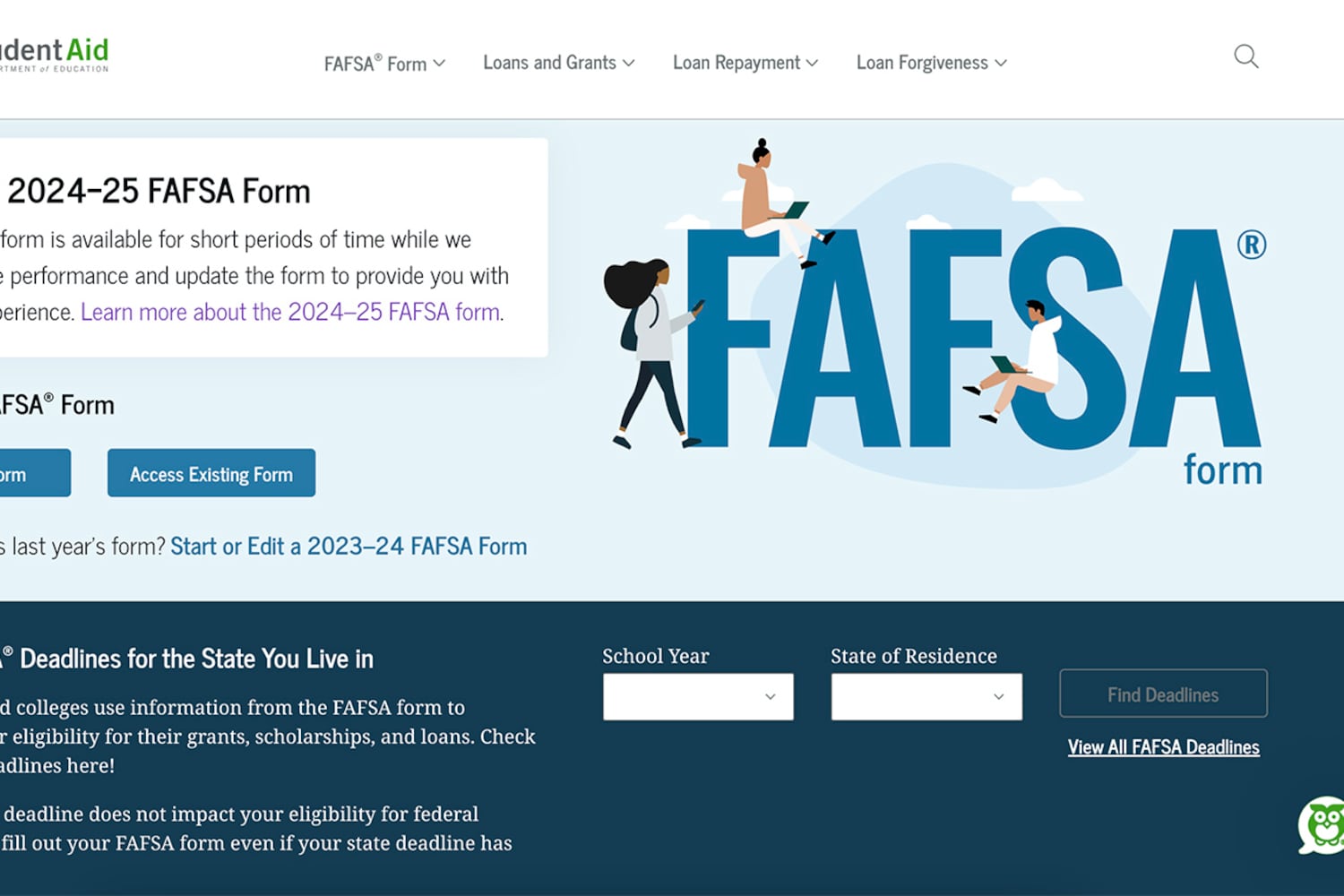Sign up for our free monthly newsletter Beyond High School to get the latest news about college and career paths for Colorado’s high school grads.
For the second year in a row, students and families won’t have access to the Free Application for Federal Student Aid on Oct. 1, when it’s traditionally released, but federal officials have promised a fully functional form on or before the start of December.
In a news release, the U.S. Department of Education announced Wednesday it would start testing the system in October with a limited number of students, colleges, and universities. This process will allow the Federal Student Aid Office to address issues before the 2025-26 FAFSA is widely released nationwide, according to the news release.
This announcement follows the problematic rollout of the 2024-25 FAFSA form. After a late release last year, ongoing technical glitches made completing the form difficult.
“The Department listened carefully to the input of students, families, and higher education institutions, made substantial changes to leadership and operations at Federal Student Aid, and is taking a new approach this year that will significantly improve the FAFSA experience,” said U.S. Secretary of Education Miguel Cardona in the news release.
The plan doesn’t fully satisfy national advocacy groups who said they’re disappointed the form won’t be ready on time. But they said the late release of a functional system is better than families suffering through another glitchy FAFSA season.
“The fact that we are still, to this day, dealing with the aftershocks of this year’s FAFSA rollout shows just how imperative it is that the process is thoroughly tested from end to end and launched as a system, not in a piecemeal manner,” said Beth Maglione, interim president and CEO of the National Association of Student Financial Aid Administrators, in a written statement.
The federal government revamped the form last year. For students who don’t encounter problems, the so-called Better FAFSA is much faster and easier to fill out than the previous version. But technical problems with the revamped form caused widespread delays and frustrations and slowed down when students received financial aid awards. It has created worries that fewer students, especially those from lower-income backgrounds, will show up in the fall.
Students whose parents don’t have a Social Security number encountered the most problems.
In response to problems in the spring, many higher education institutions nationwide delayed enrollment dates to help students have more time to understand their financial aid awards. Yet problems with the FAFSA have persisted even into the summer.
The National College Attainment Network said the federal government’s latest update is not what they hoped. About half of all students who fill out the FAFSA do so before the end of the calendar year, making it important to launch as scheduled.
However, the nonprofit’s CEO Kim Cook said the FAFSA must be reliable, especially because college officials nationwide needed to adjust numerous times during the last year to help students. NCAN has a mission to help more students make it to and succeed in college.
“We acknowledge this is a difficult trade-off between functionality and the release date,” Cook said. “We appreciate the certainty and transparency that this announcement provides to the college access field. Counselors and educational leaders can now plan their FAFSA support strategies with the understanding that students who complete the form will receive financial aid awards in a timely manner.”
The education department has also promised more information about how the testing will work and will share regular updates. It will also continue to gather feedback and officials said they will release additional tools for students and families, counselors, institutions and others about the FAFSA.
Students who submit FAFSA during the testing phase will not need to re-submit once the form is live, and the Federal Student Aid Office will use their data to identify software issues ahead of the larger launch.
Due to issues this year, FAFSA completion is down over 10% from the previous year — or over 232,600 fewer students finished the form compared to last year, according to data from NCAN.
The true impact of this year’s problems will become more clear in the fall. Financial aid experts worry that although some students might have filled out the form, they might opt to skip college in the fall.
That’s because many students graduated high school without the financial award information they typically use to select a college. Importantly, high school counselors also help advise students after they enroll, such as filling out paperwork or signing up for orientation.
Many also left high school without counseling support to understand how much college would cost them and help to understand the next steps to showing up on a college campus in the fall.
Jason Gonzales is a reporter covering higher education and the Colorado legislature. Chalkbeat Colorado partners with Open Campus on higher education coverage. Contact Jason at jgonzales@chalkbeat.org.






